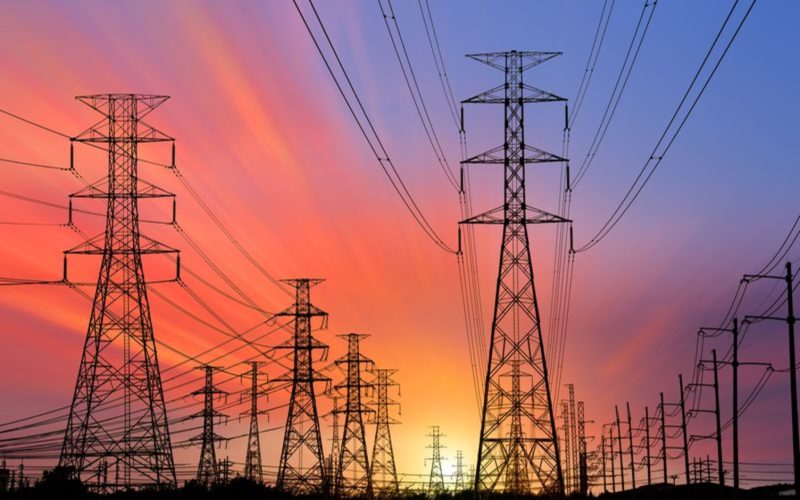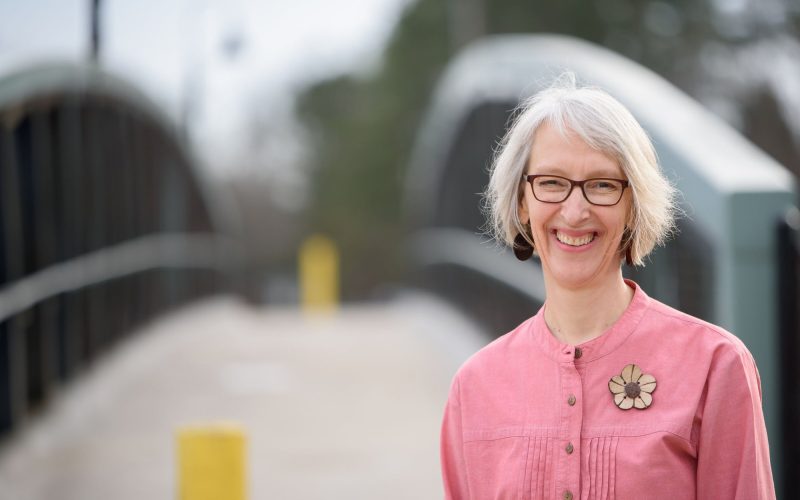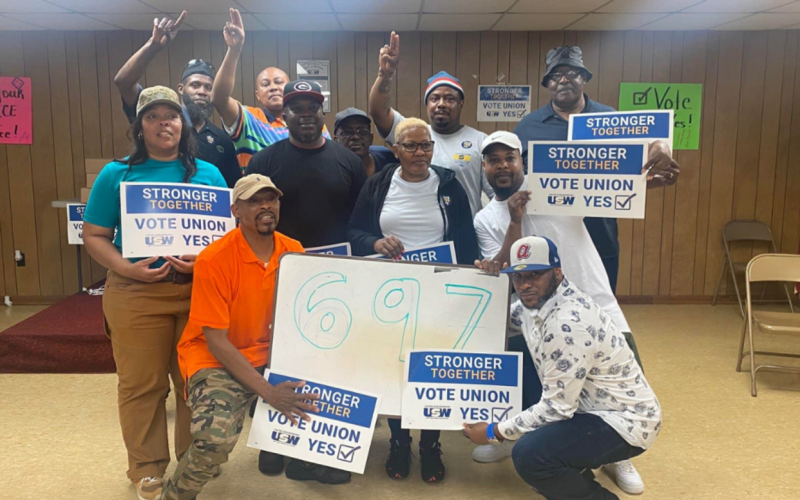Third Act's Creative Director, Simone Salvo, speaks with Dickon Bonvik-Stone of the Communicating Climate Change podcast about the power that Third Actors bring to the table and their unique position in fighting the climate crisis.
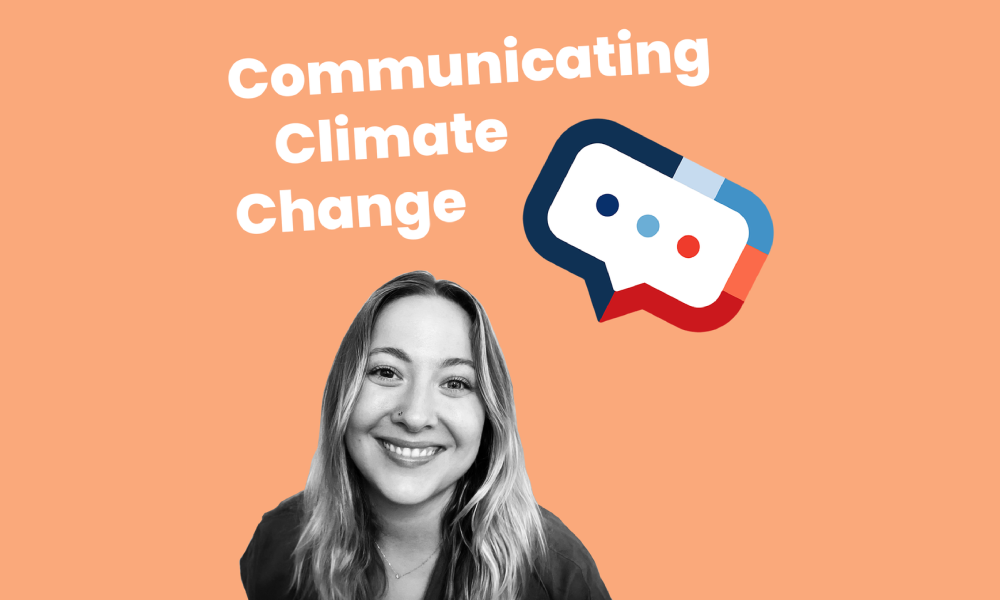
Below are a few excerpts from the conversation between Simone Salvo and Dickon. Click here to listen to all of it! It’s a special opportunity to hear about the inner workings of Third Act’s communications, technological, and operational journey.
The Unique Superpowers of Elderhood
DBS: What unique perspectives, experiences or superpowers do older adults bring to the table when it comes to addressing climate change? And how does Third Act make use of these?
SS: I love how you framed this question because older adults really do have superpowers. For one, it’s the sheer amount of [older adults]. There are more than 70 million Americans over the age of 60, and that number grows by 10,000 people each day. They also hold two-thirds of the nation’s wealth, as opposed to the 5% millennials hold. Collectively, this gives them huge leverage as a block of consumers, to hold politicians and financial institutions accountable for their fossil fuel investments. And they always vote. They are such reliable voters.
Aging is a privilege. Not everyone gets to do it and they want to put that privilege to work.
What I’ve observed in my work at Third Act is that they’re also extremely patient and persistent and this really is a secret weapon, especially in some of our more intricate, hard-to-explain work, like strengthening energy policies by influencing public utilities commissions. I will tell you just like a year ago when I was joining Third Act, I didn’t know what that meant. And in this age of collectivism, older people just have the stamina to untangle the spaghetti bowl of jargon. They are showing up in droves to our trainings, learning about Public Utility Commission regulatory proceedings, and using that knowledge to then make comments on dockets and give testimony as interveners.
On the more visual, public-facing side, it creates a spectacle to arrest older folks who are peacefully protesting. So many in this demographic are particularly willing to take bold steps because they feel a deep responsibility to future generations and frankly, they have less to lose. Aging is a privilege. Not everyone gets to do it and they want to put that privilege to work.
A Community-Led Model
DBS: What role do personal connections and community engagement play in mobilizing older adults to take action on climate issues.
SS: It’s the most important role. Our relational organizing model is based on building trusting relationships between people. These are the same ideas that were at the heart of the civil rights and feminism and voting rights movements in the sixties and where a lot of Third Actors actually got their start.
We take this peer-to-peer and relational approach that both imparts skills and nurtures creativity so that third actors can lead themselves. The idea of our volunteer-led model is to have them take charge of their fellow Third Actors.
Fears and Hopes
DBS: What are the major concerns and drivers of this audience? And where do those concerns and drivers intersect with climate change?
SS: Third Actors have major concerns about the presidential election and the state of our democracy, and these are deeply intertwined with climate change. Actually, we have a Third Actor, Lis, who is interviewing other Third Actors from across the country.
We always ask, what if we did this work joyfully? So when Third Actors talk about their fears, they also talk about their hopes.
Shalom in California wants her daughter to inherit fundamental rights, like voting, loving freely, and making decisions about her own body which are all dependent on a healthy and thriving earth. Kathryn from Wisconsin is concerned about current laws protecting our air, water, food and medicine, being corrupted for corporate profits. And from a retirement community in Michigan, Barry fears the undermining of democracy and worries that a win for climate change deniers is going to roll back progress and exacerbate the current suffering.
We always ask, what if we did this work joyfully? So when Third Actors talk about their fears, they also talk about their hopes. Barry, who I just mentioned, has five kids, elevent grandkids, and one new great-grandkid, Duke, who he calls “The Duke” and is motivated by a vision for the future where all world citizens, including baby Duke, are seen and treated with respect and knowing that they belong.
It all comes down to legacy. We see how climate change is so interconnected with these other struggles for democracy, which are really biting at our heels here at the moment.
The Nuts and Bolts of Communication Infrastructure
DBS: What challenges have you encountered in communicating climate change to older audiences and how have you overcome them?
SS: I’m going to flip this question because the biggest challenge that I’ve encountered is not actually communicating climate change to older adults; it’s figuring out how older adults communicate with each other, especially in these highly-distributed, remote, and digital landscapes.
The nuts and bolts of communications infrastructure is not what made me get into this work. It’s not sexy and it’s not the headline story, but figuring out the common denominator of how people in their sixties, seventies, eighties, and beyond can collaborate is essential.
We have over thirty working groups based in particular states or rooted in affinity. Just a couple of months ago, my team launched a network of websites all connected under the Third Act domain, which gives each working group its own blog and events calendar that they maintain so that they can keep their own working group members, outside audiences, and each other informed of what they’re doing. And then these feeds are also all aggregated together. So we have made visible hundreds of event listings and campaign updates that were previously just not anywhere or siloed. There are a lot of big numbers and flashing metrics. But my favorite is that we have about 100 Third Actors trained and working in WordPress for the first time ever and it’s growing every day.
We’ve also developed a visual brand identity that extends to the working group. It gives each working group sort of a unique logo mark that distinguishes them and also fits visually under the Third Act brand. Together, these kinds of efforts make visible the power of this collective.
The nuts and bolts of communications infrastructure is not what made me get into this work. It’s not sexy and it’s not the headline story, but figuring out the common denominator of how people in their sixties, seventies, eighties, and beyond can collaborate is essential. We have a volunteer. She’s amazing. Her name’s Lani and she came into activism at 76 years old. She was a teacher for over 40 years and she’s used that experience to help us develop a cohort of volunteer coaches. They provide support directly to Third Actors on things like how to crop an image or how to upload a document to the cloud. And this peer-to-peer approach matches perfectly with our relational organizing model. It also uses our greatest assets which are experienced people to address our greatest challenge, which is older people being left behind by technology.
Not many of our working group members are comfortable with social media and fewer of them enjoy it. On the other side, we have volunteers who have spent a whole career in software development and marketing. We encourage people to play to their strengths, but also create this space where people are learning and trying new things for the first time.
Don’t Make Assumptions, Keep it Accessible, and Listen
DBS: What advice would you give to other climate communicators who are seeking to better engage older or more mature demographics in their work?
SS: Thank you for asking this. Older folks are often stereotyped and left out of progressive conversations, but this is a huge mistake and source of untapped power. My number one [piece of advice] is don’t presume that people get more conservative as they age or that they lose their sense of humor.
And like we’ve been talking about, don’t discount their potential. Liz, one of our national volunteers put this really well so I’m just going to use what she said, which is that, it’s not that older folks are completely untechnical; you just can’t expect it to be automatic. And so make your content accessible and pay attention to how they use their platform.
This is really basic, but keep that contrast high, keep that tech size large, and those buttons obvious. Don’t forsake the iPad. Also, leverage the relative amount of free time that retired people have. Recently, I needed help on a project and I asked a Third Actor, how much time do you have? He was like, I don’t know, as much time as my wife will allow.
Most of all, listen. Not only do older people want to back up the youth who are driving the climate movement, but they also have the real structural power to make a major impact. And it’s actually just purely impractical. Our founder, Bill McKibben, talks about this all the time, just impractical to leave this problem to the next generation because we really do need as many people as possible to be engaged if we want to make change at the scale we need in the time that we have left.
As we’ve talked about, so many older folks were active in the most defining social movements of our country. And, in fact, they’ve always played a special role and can make a lasting visual impression. I’m thinking of this iconic image of Dorothy Day on the United Farm Workers picket line where she’s facing off for the sheriff from a seated position on a portable golf stool. That’s so much the DNA of Third Act, they actually call themselves the Rocking Chair Rebellion. We’ve really taken hold of this icon of the rocking chair to sit down comfortably in our power.
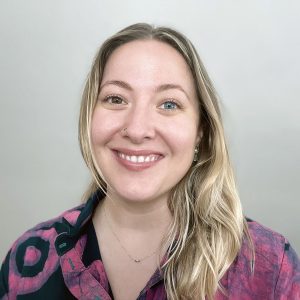
Simone Salvo
Simone blends design, media, and technology to brige generational and digital divides for impactful social change. As the creative director of Third Act, she leads the charge in building an accessible technological infrastructure for a powerful, elder-led climate justice movement. Simone is also an adjunct faculty member at the Interactive Telecommunications Program (ITP) at NYU-Tisch, where she teaches courses on memory and immersive media. Her focus is on leveraging technology to enhance storytelling, rather than the other way around.

